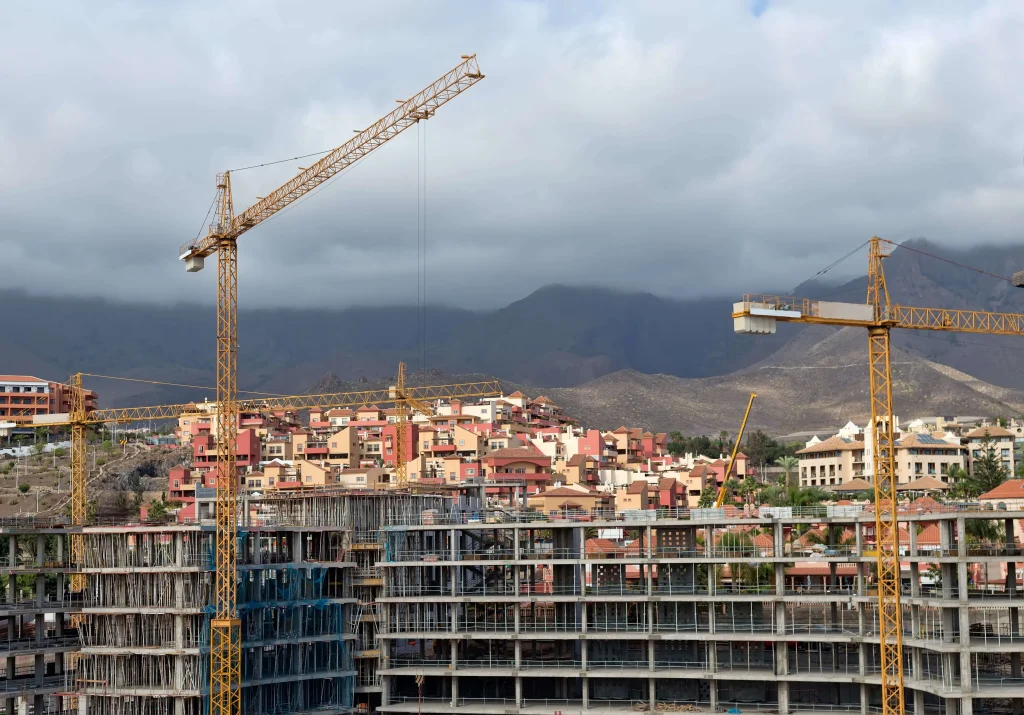In order to further economic activities within a nation, an inevitable need for continuous urbanization or urban development is guaranteed. As residential, commercial, industrial, and real estate sectors continue to be developed, there becomes a need for a set of regulations that set standards for safety in designing structures and buildings. Therefore, a valid building permit is implemented by city and municipal ordinances and maintained by building officials so that developing and existing buildings, like a house and lot for sale in Dasmarinas Cavite, follow the standards of the building permit.
The National Building Code of the Philippines
In securing permission to develop buildings, a building code must be followed. A building code is a set of regulations and provisions that building officials working with engineers, architects, developers, contractors, and the like, must make sure to comply with. Compliance with the building code is purposed for the safe construction of the buildings, which means that all of the existing buildings you will see, like your house and lot for sale in Dasmarinas Cavite, had gone through securing a building permit before they were built.

Regulations of the National Building Code of the Philippines
According to the National Building Code of the Philippines, the guidelines it states concern the “design, location, siting, construction, alteration, repair, conversion, use, occupancy, maintenance, moving, and demolition of, and addition to, public and private buildings and structures.” All existing buildings and buildings to be developed are required to follow the guidelines stated by the National Building Code of the Philippines in order to provide a safe and adequate means of ensuring existing or proposed life security. Moreover, the National Building Code of the Philippines state that any alterations and repairs on a building must conserve the aesthetic value of such a building.
Overview of Specific Regulations of the National Building Code of the Philippines
The contents of the National Building Code of the Philippines detail regulations that are important for the development of buildings, like your house and lot for sale in Dasmarinas Cavite, to comply with. Certain parts of the National Building Code of the Philippines are given much more focus by specific builders and building officials. For example, IRR Section 302.3, which focuses on applying for building permits, is significant for architects since it discusses architectural documents. Another example is the sections of the National Building Code of the Philippines that discuss occupancy, detailing the standard for capacity for parking, sidewalks, lots, public buildings, allowable floor areas, and the like. Another example is the sections that focus on Fire-Resistive Standards which detail dangerous buildings, fire zoning regulation, fire zones defined, fire retardant roof coverings, fire protection, smoke and fire detectors, sufficient fire-resistive construction, fire protective signaling systems, equivalent fire-resistive construction, more restricted fire zone, and the like.
Applying for a Building Permit
Complying with the National Building Code of the Philippines requires a building official to work with a group of builders to secure building permits or a building permit. In applying for such building permits, there are procedures to be followed by the building official and builders other than paying building permit fees. In applying for building permits, builders must submit a thorough work description, transfer certificate title of the lot or the land where the building will be developed, the purpose of occupancy for the building, the estimated cost for the building (and a copy of the lease contract, in the case the applicant is not the registered owner of the building). These documents must be submitted to the office of the building official in order to comply with the National Building Code of the Philippines, as well as existing local building codes.

Developments That the National Building Code of the Philippines Is Applicable to
The National Building Code of the Philippines enumerates what kind of developments that the national building code applies to. It states that developments such as residential subdivisions, residential and commercial sites, town sites, municipal districts and barrios with a population of at least 2,000, housing projects, schools, and the like, are required to follow the National Building Code of the Philippines and its processes of securing building permits. Furthermore, any buildings that have been repaired or altered, like a house and lot for sale in Dasmarinas Cavite, have to comply as well with securing building permits and the National Building Code of the Philippines.
The Processing for Building Permits and the Building Permit Requirements Philippines
There are officials called building officials and relevant staff that are in charge of facilitating the processing of building permits. Such technically qualified employees that regulations of the National Building Code of the Philippines such as “zoning, sanitation and sewage, lines and grades, structural design, environmental health,” environmental planning research, and the like are complied with as stated by the national building code to such an extent that is satisfactory. In the construction process of a building, whether it is an ancillary or accessory facility, one-story building houses, public buildings, and the like, must be overseen by professionals such as engineers and architects that ensure that the National Building Code of the Philippines is followed. By the end of the construction process, it must be approved by the building official overseeing the development of the building or structure. Final inspections will be done by the building official before the building developed is determined as ready for occupancy.
Check Out Amalfi, Our House and Lot In Dasma!
Other Technicalities of Building Permits
Inspections
In the construction process of a building or structure, like a house and lot for sale in Dasmarinas Cavite, the engineer or architect must inspect and supervise the building being constructed and ensure that the construction is following the plans that have been approved for securing a building permit with the necessary building permit fees having been paid.
Penalties
In the event that the National Building Code of the Philippines is not complied with, penalties such as revocation, suspension, or non-issuance of a building permit may be given. Examples of instances that cause such penalties include incorrect information in the plans submitted, failure to comply with the regulations stated in the National Building Code of the Philippines, and errors in the specifications or plans submitted.
Exemptions
The National Building Code of the Philippines states that an exemption to the National Building Code of the Philippines states that traditional indigenous family dwellings and public buildings are exempted from building permit fees.
Read More: Know the Relevant Permits to Build Your Own House


